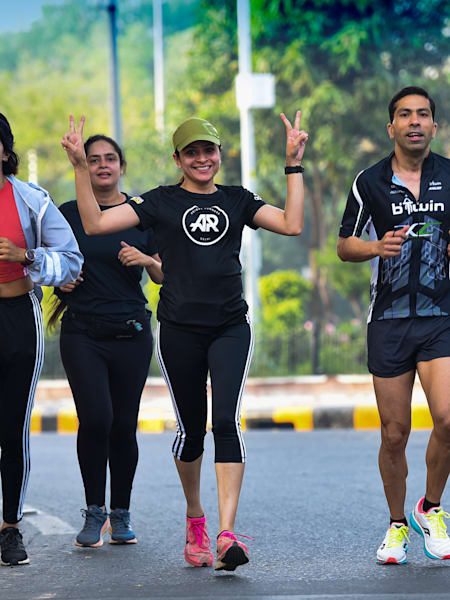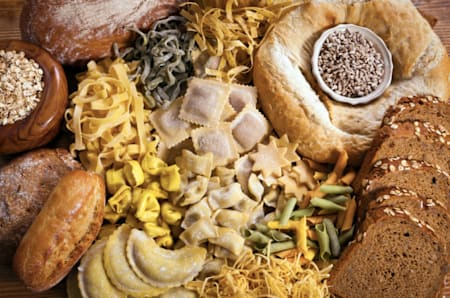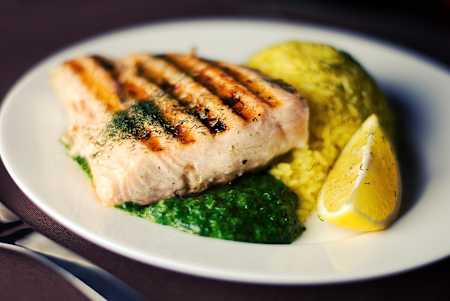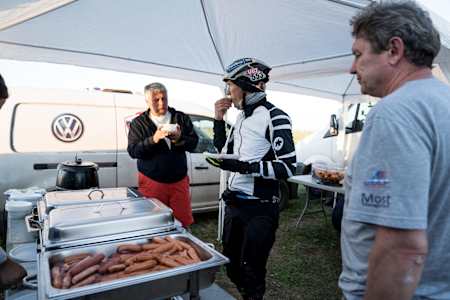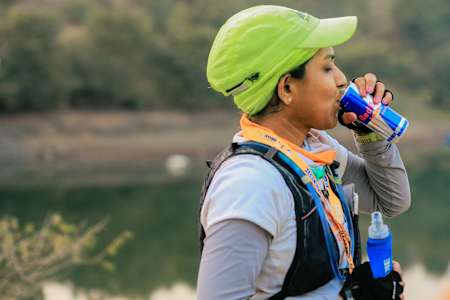For a lot of runners, a marathon is just not challenging enough. And so ultramarathons have been emerging as the pinnacle of endurance sport.
These races are held over punishing distances, varying terrain and could last multiple days. According to studies, runners can expend anything between 3500 calories to 8000 calories a day during an ultra. However that is an approximation and a lot would depend on the weather, altitude, incline and the total duration of the race.
The extreme demands of ultramarathons mean nutrition is paramount. We talk to Adidas Runners coach Anil Mahoba from Bengaluru and ultrarunner Sanjay Pahuja for some tips on nutrition for ultrarunners.
Adidas Runners has currently suspended outdoor community sessions in India until conditions improve. The community advises everyone to take care if participating in personal running or training sessions.
01
Tip 1: Learn about ideal macro nutrient balance
Even though ultra-runners can burn almost everything they eat in training, they need the right fuel to not only last the distance but also to recover.
“If you lose weight you have to make sure that you take proper nutrition and not compromise on the calorie intake,” says Pahuja. “When you train for ultra, you have to run about 80-90kms a week. Earlier when I used to run that much, it was kind of a struggle for me because my body would not recover. Also, if you don’t have that energy in your body, you tend to get cramps.”
Nutritionists recommend an ideal macro nutrient break up of: 60 per cent carbohydrates, 25 per cent fat and 15 per cent protein.
While carbohydrates and fat make up the energy stores, protein is critical for recovery. Protein helps in transporting nutrients to cells and repairs tissue.
02
Tip 2: Train your body to use fat as fuel
When you run long distances, like ultramarathons, the body has to tap into fat resources to keep you going. The energy from carbohydrates, about 2,500 calories for an average person, is spent in the first hour and a half to two hours.
“Glycogen stays in the body for the first 90 minutes, and then it starts depleting,” says Mahoba.
“So the body takes the sugar and then it starts burning fat, which is after maybe 90 minutes of a run. It’s a slow burning of fat, which doesn’t give you a burst of energy, but it’s sufficient for nice long runs.”
But that does not mean you can eat oily, high-fat, processed foods. Nuts, seeds, oily fish are excellent sources of essential and monosaturated fats, which is what the body requires.
“You have to train the body to start burning the fat as well,” Mahoba adds. “So athletes tend to go for long morning runs and then evening runs. Essentially you run at least three hours, but it’s a slow run so that you don’t burn out.”
03
Tip 3: Plans for changing diet should be set well in advance, not just before a race
Pahuja turned vegan to unlock his running potential. And even though it has worked wonders for him, not everyone needs to go that extra step.
But focus should be on nutrient dense, slow-releasing carbohydrates like fruits, vegetables and whole grains. When it comes to protein, opt for leaner meats, eggs and low-fat dairy products. Soya, pulses and nuts are good sources of protein for vegetarians.
As a rule of thumb, the less processed the food, the better it is.
“People think about eating clean only before a race,” says Pahuja. “But what happens when you change your diet a week before, if your body cannot accept it, that might go against you.
“It’s better to follow the diet plan, whatever you are doing, do it in advance. You know the next big race is going to be in three months, and you anyway have to start practicing in advance. So plan your diet also three months in advance, not a month or a week before the race.”
04
Tip 4: Pay attention to protein, carbohydrates and colloid hydration before a race
Like your training, your diet also changes according to the phase you are in.
“The tapering period is around two-three weeks before the race,” says Mahoba. “You reduce your mileage in training during this phase, and you increase your protein intake to make sure you don’t lose your muscle.
“And you must hydrate well. But ‘hydrate’ doesn’t mean just drink water because the body will not retain water. If you drink four-five glasses of water, you lose it as soon as you go to the washroom. The water should be in colloid form. Green tea, buttermilk. It should be in that form so that the body can retain it and use it to distribute energy. That’s colloidal hydration.”
You can load up on carbs and proteins in the days before a race
© Pavel Sukhorukov / Red Bull Content Pool
You can start carb-loading – approximately 10g of carbohydrates per kg of bodyweight – about three or four days before the race. Fill up on foods like rice, pasta and potatoes.
“You also have to keep a check on your nitrate level, which is helped by beetroot juice,” adds Mahoba. “So you include beetroot juice from Thursday onwards (if the race is on Sunday). It just improves the blood nitrate level.”
An increase in nitrate level can turn hemoglobin to methemoglobin, which can reduce the capacity of the blood cells to transport oxygen.
05
Tip 5: What to eat the day of the race
The energy from the food you eat the night before will fuel the first 25-30kms on race day.
“On race day, I drink black coffee and eat a peanut butter sandwich; banana as well,” says Pahuja. “I eat potatoes as well, sweet potatoes, mashed potatoes with daal khichdi.”
Usually, organisers will also offer foods like mashed potatoes, bananas or peanut butter sandwiches at refuelling points during the ultra-races. Make sure you eat enough to sustain you the next 15 kilometers or so. You can also have energy drinks like Red Bull for a quick burst of energy.

